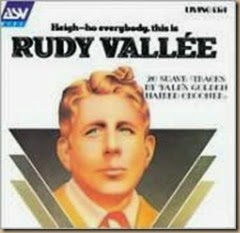by John M. Floyd
As a native of Mississippi, I confess that most writers south of the Mason-Dixon think they're good at writing dialect, or at least think they
should write dialect, because the way southerners talk is so different and so recognizable. (If you don't believe that, you ain't seen the last of Ernest T. Bass.)
The truth is, whether we're good at it or not, we'd be well advised to (as one dominatrix said to the other) use a little restraint now and then. The overuse of dialect of any kind is far more risky than not using it at all. More about that later.
Calling the dialectrician

What exactly
is dialect, anyway?
Merriam-Webster says it's "a form of a language that is spoken in a particular area and that uses some of its own words, grammar, and pronunciations."
I prefer a simpler definition: it's the way specific groups (regional, ethnic, social, etc.) talk. And, make no mistake,
all of us speak in dialect. It only sounds funny when it's not ours.
From a writing standpoint (which is, after all, where we at this blog should be standing and pointing from), dialect can at times be useful. All writers want their characters to have individual, believable voices. We should make them speak in dialogue that has unique phrases and interesting rhythms. I once heard that the key to fascinating characters is not the words they use but the way they use them. Reference a quote from
To Kill a Mockingbird: "I was sittin' on the porch, and he come along. There's this old chifforobe in the yard, and I said, 'You come in here, boy, and bust up this chifforobe, and I'll give you a nickel.'" To me, that's good use of dialect. I grew up the same part of the country as Harper Lee's Maycomb County, and I can assure you a lot of folks down here talk that way.

At
theeditorsblog.net, Fiction Editor Beth Hill says we should "use contractions--I'd, isn't, weren't, would've, and so on. Then, when you
don't use a contraction, the words will take on an emphasis they couldn't have if all words were written
without contractions." (As in, I suppose, "I did
not have sexual relations with that woman." Presidential statements should always be emphatic.)
Ms. Hill goes on to say that authors should "select one or two or half a dozen words that'll identify a character's background and accent or dialect. Or use a sentence construction or phrase pattern with recognizable accents." Another example of the proper use of dialect, this one from
Huckleberry Finn: ". . . It was rough living in the house all the time, considering how dismal regular and decent the widow was in all her ways; and so when I couldn't stand it no longer I lit out."
Compare that to this groaner of a line, from Huck's friend Jim: "I got hurt a little, en couldn't swim fas', so I wuz a considable ways behine you towards de las'." Go thou and don't do likewise.
Which brings up the other side of the coin:
Don't touch that dialect

The fact is, an overdose of dialect can kill your story deader than Billy Bob Shakespeare. Despite what we've seen in some of the work of Mark Twain, Charles Dickens, Margaret Mitchell, George Eliot, William Faulkner, and many others from long ago, the overuse of dialect these days can be as dangerous as the all-too-familiar overuse of adverbs, adjectives, italics, exclamation points, cliches, ellipses, etc. Any of those things are distractions when used too often, and can pull the reader out of the dream world you've worked so hard to create.
Too much dialect can also transform your characters from realistic and interesting to cartoonish and cliched. Not to mention the fact that it is sometimes--let's face it--politically incorrect.
Besides, most dialect is just plain annoying. In a
DailyWritingTips piece called "Showing Dialect in Dialogue," Maeve Maddox says modern readers have little patience with this kind of writing. Detailed punctuation, she says, interferes with the narrative, and "some readers who speak nonstandard dialects find attempts to represent their home dialects--even if they are successful renditions--disrespectful." She then addresses one of my pet peeves: "Sprinkling dialogue with odd spellings is especially pointless when the misspelling conveys the same pronunciation as the standard spelling. For example,
sez for says, and
shure for sure. The consensus among today's writing coaches is that dialect is best expressed with vocabulary, grammar, and easily understood regional expressions, rather than with apostrophes and made-up spellings."
Screenplays can be a different matter. In the movie
Fargo, they overused dialect quite a bit, for the purpose of humor--and it worked. Ya, darn tootin', youbetcha it did.
More quotes on this subject:
"Dialect is out. Hinting at a character's ethnic background or regional origins by very subtle means is in. The occasional foreign word or
y'all will do, and by all means, don't spell funny. Editors hate funny spelling. So do intelligent readers." -- Carolyn Wheat,
How to Write Killer Fiction
"Four out of five readers report that reading representations of heavy dialect is extremely bothersome." -- Lori L. Lake, "The Uses and Abuses of Dialect,"
justaboutwrite.com
"There is no point in spelling phonetically any word as it is ordinarily pronounced; almost all of us say things like 'fur' or for, 'uv' for of, 'wuz' for was, 'an' for and . . . When you misspell these words in dialogue, you indicate that the speaker is ignorant enough to spell them that way when writing." -- Janet Burroway,
Writing Fiction: A Guide to Narrative Craft
"Dialogue that is written in dialect is very tiring to read. If you can do it brilliantly, fine . . . but be positive that you do it well, because otherwise it is a lot of work to read short stories or novels that are written in dialect." -- Anne Lamott,
Bird by Bird
"Some writers try to use misspellings to convey dialect. Yet . . . those who speak differently don't
spell differently; the words are the same. So the spelling should be standard." -- Beth Hill, as credited above
"Dialect is annoying to the reader. It takes extra effort to derive the meaning of words on the page . . . [also,] dialect is offensive to some readers." -- Sol Stein,
Stein on Writing
Have a good dighe, mite

Another aggravation is that many U.S. writers seem to have problems with the English dialogue of characters from other countries. The best tip I've heard regarding foreigners' dialects came from
Revision & Self-Editing, by James Scott Bell. He said we should use syntax (the order of the words rather than the words themselves) to indicate that someone's native language is not English. Example: "Please, where is bathroom?"
Anytime this topic comes up, I'm reminded of an e-mail I received years ago from an IBM colleague in the Philippines the week before I traveled to Manila to teach a check-processing class. His note to me (I printed it out and kept it) said, "I am having happy feeling about you come to visit."
Sometimes simple is the best option. In the article "Most Common Writing Mistakes: The Do's and Don'ts of Dialect" at
helpingwritersbecomeauthors.com, K.M. Weiland says, "Readers are smart. They don't need much encouragement to get the idea that your character talks like Jackie Chan or Helen Mirren. Sometimes just mentioning your character's nationality will be enough to help readers hear the proper accent when reading your dialogue." She continues with: "Let your character's interesting word choices or incorrect sentence constructions carry the burden of conveying the foreignness of his speech." Good advice.
Personal observations

In my own writing, I commit dialect errors often, but I'm trying to cut back to two or three a week. I still leave the occasional "g" out of my writin' and rantin', and I can't seem to resist using "gonna" or "gotta" now and then. But I'm editing out more and more of the sho-nuffs and the scuse-me's and substituting correct spellings.
Finally, here's an example of dialect from one of my favorite movie characters: "Luke, when gone am I . . . the last of the Jedi will you be."
Now, gone am I. Back in two weeks I will be.




























